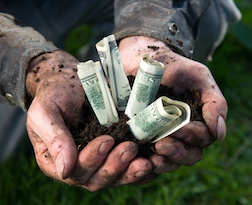 Prior to the law being signed, farmworkers only made overtime when they worked more than 10 hours a day or 60 hours a week. The law will allow a phased transition to the new overtime hours up to 2022 when the eight-hour overtime threshold will be in effect.
Prior to the law being signed, farmworkers only made overtime when they worked more than 10 hours a day or 60 hours a week. The law will allow a phased transition to the new overtime hours up to 2022 when the eight-hour overtime threshold will be in effect.The bill—Bill AB 1066—was proposed by California State Assemblywoman Lorena Gonzalez (D-San Diego). The first phase of the transition begins in 2019, when the daily threshold for overtime pay will drop to 9.5 hours. Each year, the daily threshold will drop by a half-hour until 2022. The weekly threshold will drop five hours every year until 2022 when it will be 40 hours.
Meanwhile, another overtime topic that has been followed in the news remains murky: whether employees should be compensated for time spent donning and doffing special work-related gear. The courts have returned conflicting decisions regarding the issue of donning and doffing, although the recent ruling in the Tyson case backed workers' claims that they should have been paid more for time spent putting on and taking off safety gear.
READ MORE CALIFORNIA OVERTIME LEGAL NEWS
The court found—in a split ruling—that donning and doffing constituted work, because the activities followed procedures Gerber developed and benefited from.
"Here, Gerber is accepting the benefit of the employees donning and doffing without providing proper compensation to the employees," Associate Justice Karen R. Baker wrote. "Further, the time the employees spend performing these mandatory activities is time that the employees are unable to use for their own purposes."
The lawsuit is CV-15-966, Supreme Court of Arkansas.
